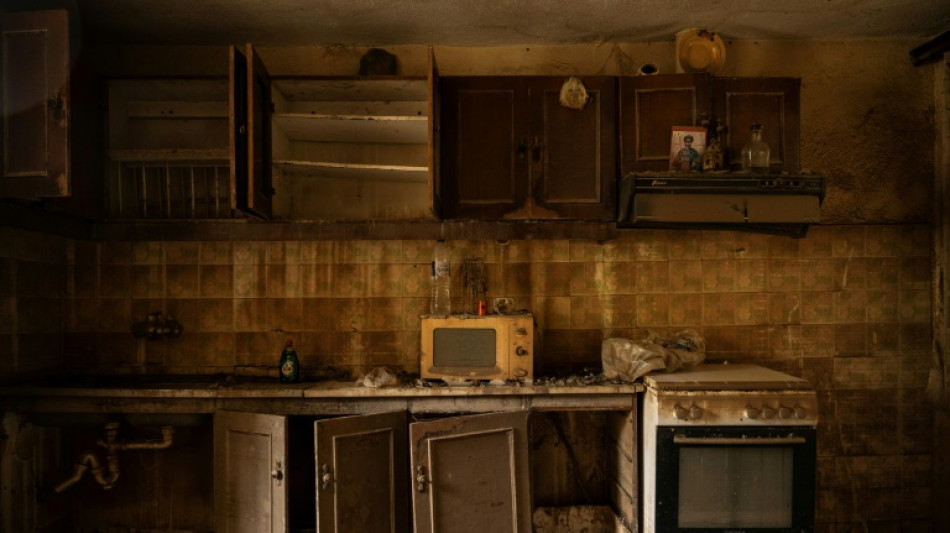
CMSC
0.0320


When Storm Daniel this month dumped cataclysmic amounts of rain on his village in central Greece, Nikos Falangas barely had time to flee.
Three weeks on, with the village of Vlochos still clogged with tonnes of mud, Falangas could only stare dumbstruck at what little remained of his family home.
"All I could save was a family photograph and one of my child's toys. This is all that's left of the house where I was born and raised," he told AFP, fighting back tears.
"Words cannot describe the tragedy we are going through," he said.
- 'Nothing can be done' -
Eri, an Albanian labourer from a nearby village, was helping to salvage appliances from inside another house.
He noted that at the height of the flood, the water had reached the roofs of the traditional single-storey houses.
"That's four metres (13 feet) high," he said. "Nothing can be done here."
Most of the villagers had left. The few dozen that remained were sheltering in the local church, which was built on a hill and therefore less at risk of flooding.
The unprecedented storm left 17 dead and devastated the central region of Thessaly, the heart of Greece's agricultural production.
The flood drowned tens of thousands of farm animals whilst also sweeping through warehouses containing fertiliser, weedkillers, petrol and other chemicals, leaving behind a toxic floodwater mix.
Piles of destroyed furniture, appliances and clothes were dumped outside each home as the stench of dead animals and tainted water filled the air.
As the Vlochos villagers struggled to rebuild, dark clouds were gathering overhead.
Lightning streaked through the sky and thick raindrops began to fall.
A new storm front dubbed Elias is expected to hit Greece from Tuesday, bringing heavy rain and sleet.
Facing a barrage of criticism at a perceived failure in cooperation between the army and civil protection in the hours following the disaster, the government has pledged over two billion euros ($2.1 billion) in reconstruction funds.
Dimitris Malai, a 27-year-old trainer, said he was determined to rebuild his life in the village.
"This is where we grew up. We want to rebuild our village. But the authorities must do something for us, otherwise life cannot return here," he said.
But some in Vlochos said the state was still conspicuously absent.
"No one came to see us, to help. Only some volunteer organisations supported us," said Apostolis Makris, a 62-year-old police officer.
"Sending us bottled water is not enough," fumed 68-year-old villager Dimitris Anastasiou.
"We had everything and now we have nothing. They are crooks," he said of the government.
His wife Gogo, 65, broke down as they returned to their gutted home.
"The memories of an entire life were lost, in addition to our property," she said.
"All our family heirlooms, photographs and items of great sentimental value, were destroyed. It's as if a major part of my life was torn out," she said. "This is what hurts the most."
J.M.Ellis--TFWP